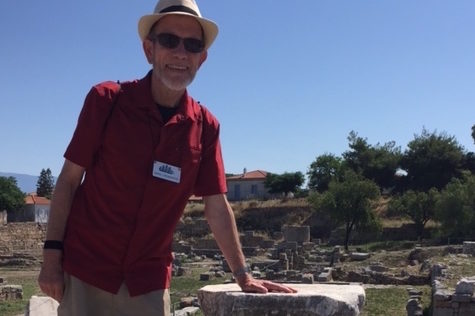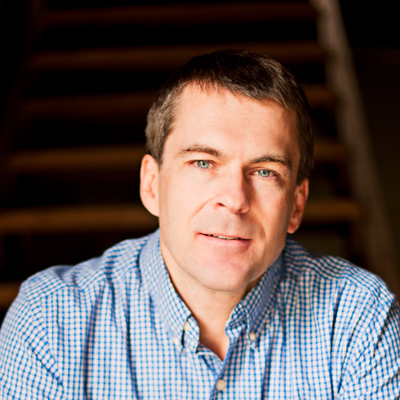
I first met Michael Cromartie ten years ago at the Emerging Evangelical Intelligentsia Project Conference hosted by Peter Berger at Boston University. It was a remarkable gathering that included historians George Marsden and Mark Noll, philosophers Alvin Plantinga and Nicholas Wolterstorff, sociologists Nancy Ammerman and Michael Lindsay, and legal scholars Bill Stuntz and David Skeel among many others. When Mike spoke, I was reminded of the old Sesame Street refrain “One of these things is not like the others.” Mike was scholarly but not a professor. He had several published volumes to his name, but as an editor rather than an author. As a speaker, he was insightful and funny.
Cromartie passed away on August 28th, and initial assessments of his contribution to religion and public life are rightly rolling in from a wide array of folk:
- Carl Cannon at RealClearPolitics;
- Ross Douthat and Sam Roberts at the New York Times;
- Cherie Harder at The Trinity Forum;
- Michael Lindsay at the Gospel Coalition;
- Kathleen Parker at the Washington Post;
- William Saletan at Slate;
- Grant Wacker at Education and Culture; and
- Peter Wehner at Christianity Today.
This summer, my wife Julie and I had the serendipitous privilege of spending ten days with Mike and his wonderful wife Jenny as members of a tour group visiting biblical sites in Greece, including Athens, Corinth, Phillipi, and Thessolonica. Upon arrival it was clear that Mike was frail, his body already ravaged by years of cancer. If he turned sideways in a crowd you could lose him.
But he was still a ball of fire. On the island of Patmos, after visiting the cave where John is believed to have received his revelation recorded in last book of the Christian Scriptures, we headed up to the Monastery of St. John. It was a steep hike, and arguably Mike had no business being there. But he was not one to argue with. Especially for him, this was a once in a lifetime opportunity, and he was not going to miss it. With the companionship and patient encouragement of Jenny—and the tour group’s doctor—he made it up and eventually back down. Although he retired early that evening, the next day he could be seen banana boating!
Stomach cancer apparently does no favors to one’s appetite, and at meals Mike struggled to eat. He was also almost comically uninterested in matters medical. Thank God for Jenny, who was always at his side, answering questions others had about his cancer that he couldn’t answer for himself, all the while encouraging him to get as much protein as possible. Mike’s mouth was so fully engaged in lively conversation that one wonders how he ever made time to eat. Whether the topic was religion and public life or anything to do with basketball, his table was sure to have the liveliest of exchanges.
Mike was opinionated but humble. When I challenged him on his critical assessment of a mutual colleague, he stopped talking for a while and just listened. Later he thanked me—“I needed to hear that,” he said. If one of the hazards of spending a lot of time with really smart people is that you might become like them in their insistence on being correct, Mike was a rare and refreshing exception.
The Faith Angle Forum, which introduced mainstream journalists to religious ideas and scholars they might otherwise be tempted to dismiss or deride, was the brainchild of Mike’s professional life. “A number of religion reporters have told me that Mike was their ‘go-to’ person for perspective and quotable comments on evangelicalism,” Rich Mouw wrote to me. “He had genuine friendships across the political spectrum, and was gifted at bringing together people who disagreed, simply to have a productive conversation. In these engagements, he clearly was not advancing a particular agenda, but rather doing his part to create spaces for mutually respecting civil discourse.” The forums were always fascinating, and included Cornell graduates and Chesterton House advisors Elaine Howard Ecklund and Ard Louis. The byproducts of Mike’s efforts include many interesting pieces such as David Brooks’ feature on John Stott. In a manner that mirrors the ministry of the Holy Spirit, who by nature calls attention to Another, Mike spent his life humbly pointing people to the good work of others.
In addition to the great personal loss to so many friends and family, Mike’s passing raises a question: What is the future of the project to which he devoted his prodigious energy? I refer here not just to the Faith Angle Forum, but to the forum’s mission—the development and promotion of thoughtful Christian faith, which of course is also the mission of Chesterton House.
The Emerging Evangelical Intelligentsia Project seems to have fizzled without much to show for it, and many of the aforementioned scholars—whom James Turner once called the “evangelical mafia”—are now retired. Wheaton’s Institute for the Study of American Evangelicals closed in 2014, and Books & Culture, the flagship publication of the movement, has just folded. Patronage for these sorts of projects also seems to have dried up. Later this month some of the folks associated with the movement will gather for a conference entitled “The State of the Evangelical Mind: Reflections upon the Past, Prospects for the Future.” The not so subtle subtext of the conference is “Is there a future?” Simply put, the trends are not encouraging.
All of which brings me back to Patmos. The trends in John’s time also were not encouraging. He wrote from prison to his fellow believers who were victims of real persecution, including at times death by burning, crucifixion, or worse. And yet the Book of Revelation is a manifesto for hope.
Then I saw a new heaven and a new earth, for the first heaven and the first earth had passed away, and the sea was no more. And I saw the holy city, new Jerusalem, coming down out of heaven from God, prepared as a bride adorned for her husband. And I heard a loud voice from the throne saying, “Behold, the dwelling place of God is with man. He will dwell with them, and they will be his people, and God himself will be with them as their God. He will wipe away every tear from their eyes, and death shall be no more, neither shall there be mourning, nor crying, nor pain anymore, for the former things have passed away.” And he who was seated on the throne said, “Behold, I am making all things new.” Also he said, “Write this down, for these words are trustworthy and true.” And he said to me, “It is done! I am the Alpha and the Omega, the beginning and the end. To the thirsty I will give from the spring of the water of life without payment. The one who conquers will have this heritage, and I will be his God and he will be my son. (Rev. 21: 1-7)
Even and perhaps especially when there is little reason for optimism, we have plenty of reason for hope. The resurrection of Jesus, as wonderful as it was, anticipated an even greater restoration of all things that is yet to come!
Mike understood all this. He was not discouraged. His laugh endured even when his appetite did not. He knew of the New Jerusalem. In his final days, Jenny reports, he was reading (and highlighting!) an essay by Jonathan Edwards on heaven—a place where there will be no more crying or pain, where Jenny’s tears will be wiped away, and where, at a banquet table, he again will eat and drink with fullness of appetite.


